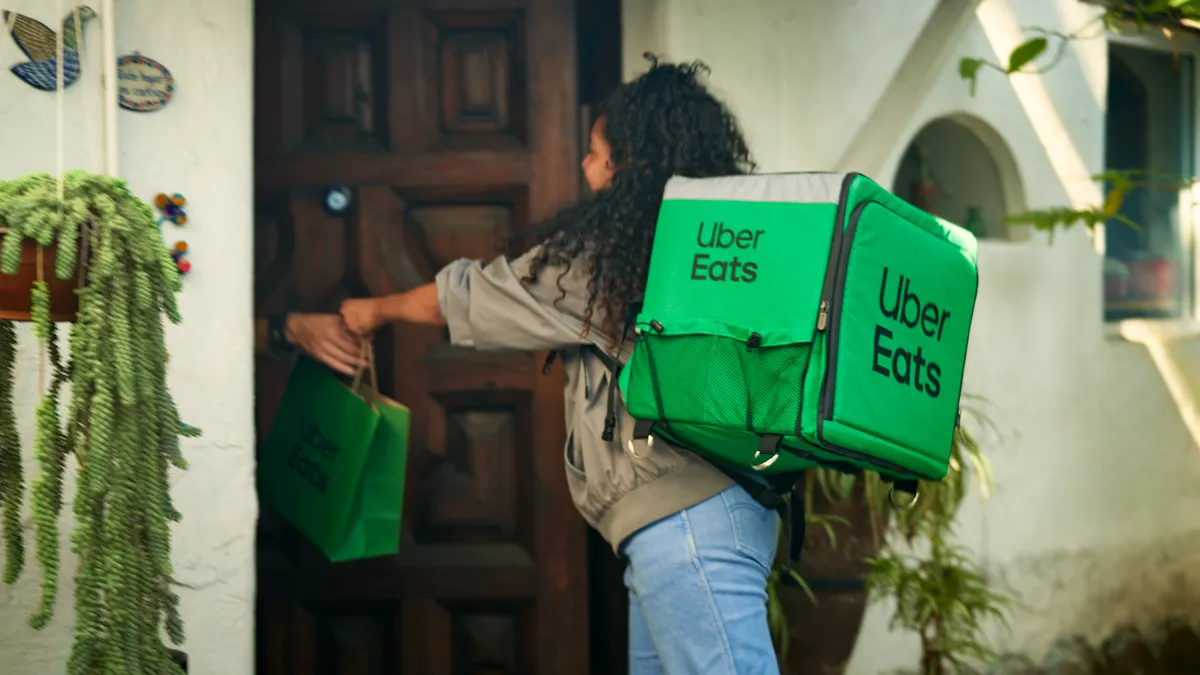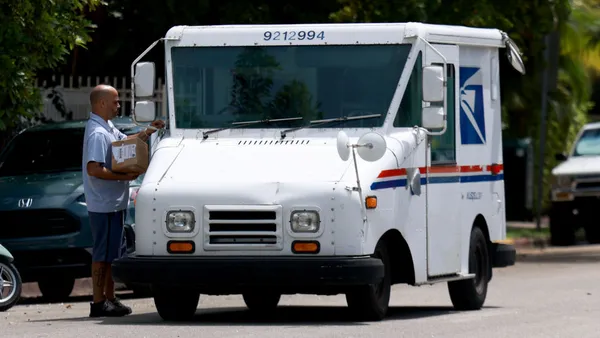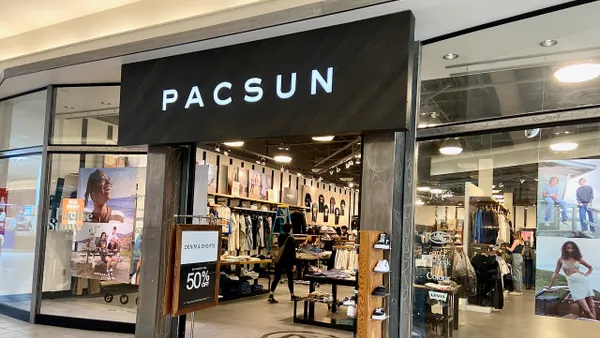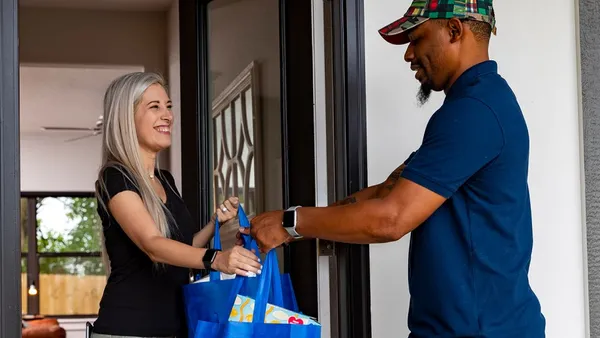Dive Brief:
- Thousands of independent retailers using National Retail Solutions' point-of-sale platform can access same-day delivery through Uber, the companies announced Nov. 17.
- The deliveries will be provided at no cost to participating stores when the purchases are made through NRS' BR Club app. NRS has more than 20,000 active POS terminals operating at over 17,000 stores across the country.
- Uber Direct, the company's white-label delivery service that businesses can offer on their websites or apps, will be used for deliveries. "Our partnership with NRS will give small, local bodegas and grocery stores an opportunity to expand their reach through delivery and make more money, which is something we all should be excited about," Jason McHale, Uber Direct Managing Partner, said in a statement.
Dive Insight:
NRS' partnership with Uber levels the playing field for local convenience stores and other neighborhood retailers to better compete in the on-demand delivery era, NRS President and CEO Elie Y. Katz said in an interview.
The pairing provides independent retailers an edge in terms of end-consumer pricing, thanks to the "attractive rate" Uber offers for the arrangement, according to Katz. It also exposes these stores to a larger audience — instead of traveling to a CVS, Walmart or Target, consumers can order from a nearby convenience store.
Stores using NRS' POS platform "can flip on the switch today" to have products available for orders on the company's app, Katz said. He added that it's an easy process because, through its platform, NRS knows what retailers are carrying and selling.
The next step is for local retailers' products to be available for order through Uber's app and search engines, according to Katz.
"If I'm looking for Nesquik strawberry milk…then I can just Google it and then it'll show me some of the stores that are located around me that are carrying it, and then I can order from it," he said of the potential use of search engines.
The COVID-19 pandemic heightened consumer interest in on-demand deliveries, but providers have struggled to create a profitable business model in a highly competitive space, leading to industry consolidation and layoffs. Still, that doesn't mean their presence will evaporate entirely, including for convenience deliveries. DoorDash's convenience and grocery business grew significantly in its most recently reported quarter, for example.
"The influx of rapid grocery delivery companies over the last couple of years has put a strain on these retailers and threatened our small businesses," New York City Council Member Julie Menin, chair of the New York City Small Business Committee, said in a statement. "Uber's partnership with NRS can provide relief by helping update critical technological systems and offering delivery that is free for the merchant.”















